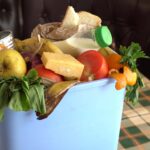
DEIBEL BLOG
Lorem ipsum dolor sit amet, consectetur adipiscing elit. Quisque accumsan interdum diam, in scelerisque magna aliquet id. Quisque ut euismod eros.
DEIBEL BLOG POSTS
SEE WHAT THEY’RE SAYING
Our happy customers have a lot to say about our products and services!
Lorem ipsum dolor sit amet, consectetur adipiscing elit. Quisque accumsan interdum diam, in scelerisque magna aliquet id.

Mary Sequoia
AuthorLorem ipsum dolor sit amet, consectetur adipiscing elit. Quisque accumsan interdum diam, in scelerisque magna aliquet id.

Philip Glacier
PublisherLorem ipsum dolor sit amet, consectetur adipiscing elit. Quisque accumsan interdum diam, in scelerisque magna aliquet id.

Amy Redwood
ConsultantABOUT US
Learn more about Deibel Labs and our long history of excellence in the food testing industry.
RESOURCES
Find out whats happening at Deibel Labs or explore some of our valuable resources and links.
DEIBEL C.A.R.E.S.
Learn more about Deibel C.A.R.E.S. and how we’re making a difference in communities across the country.






